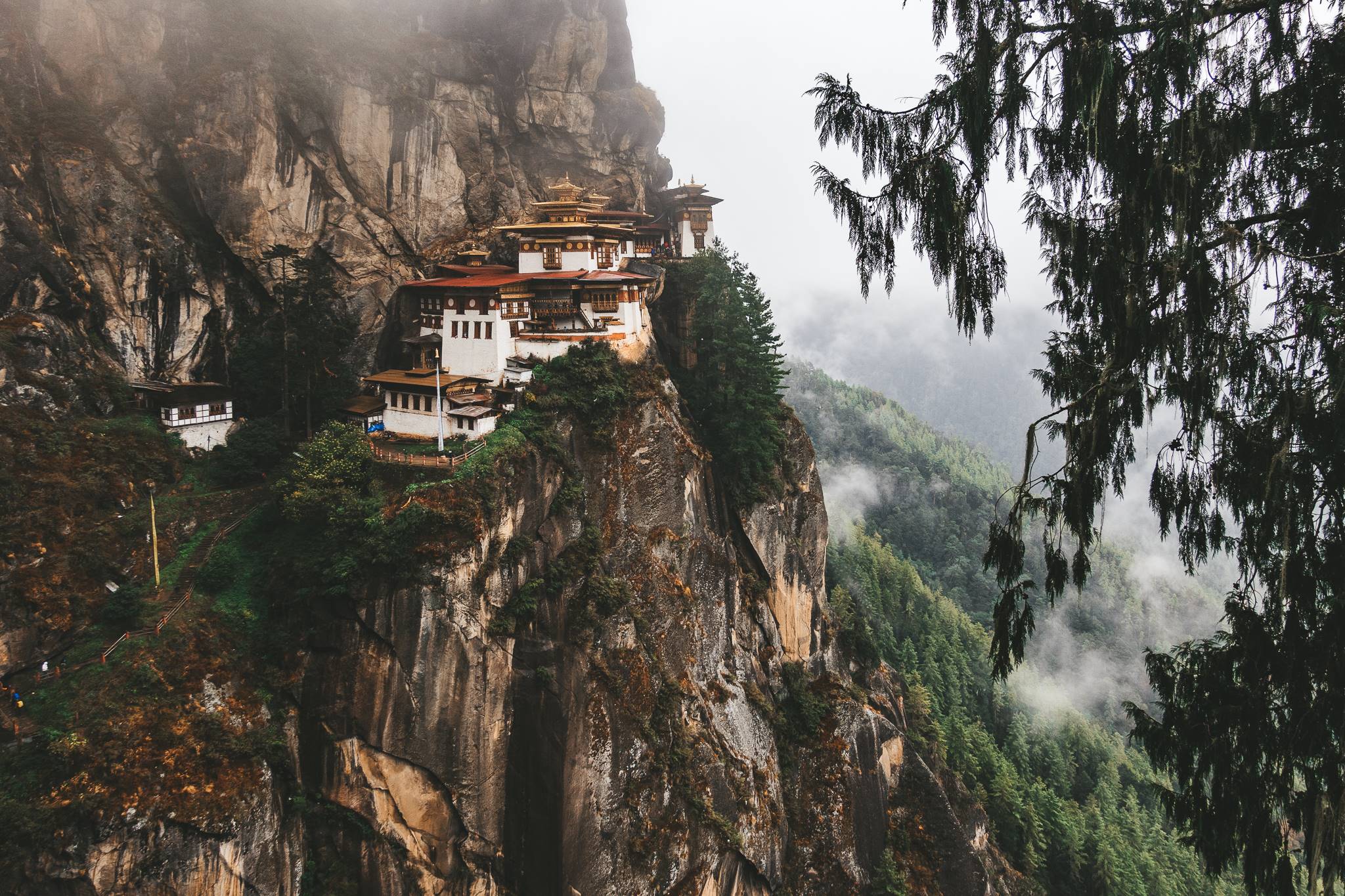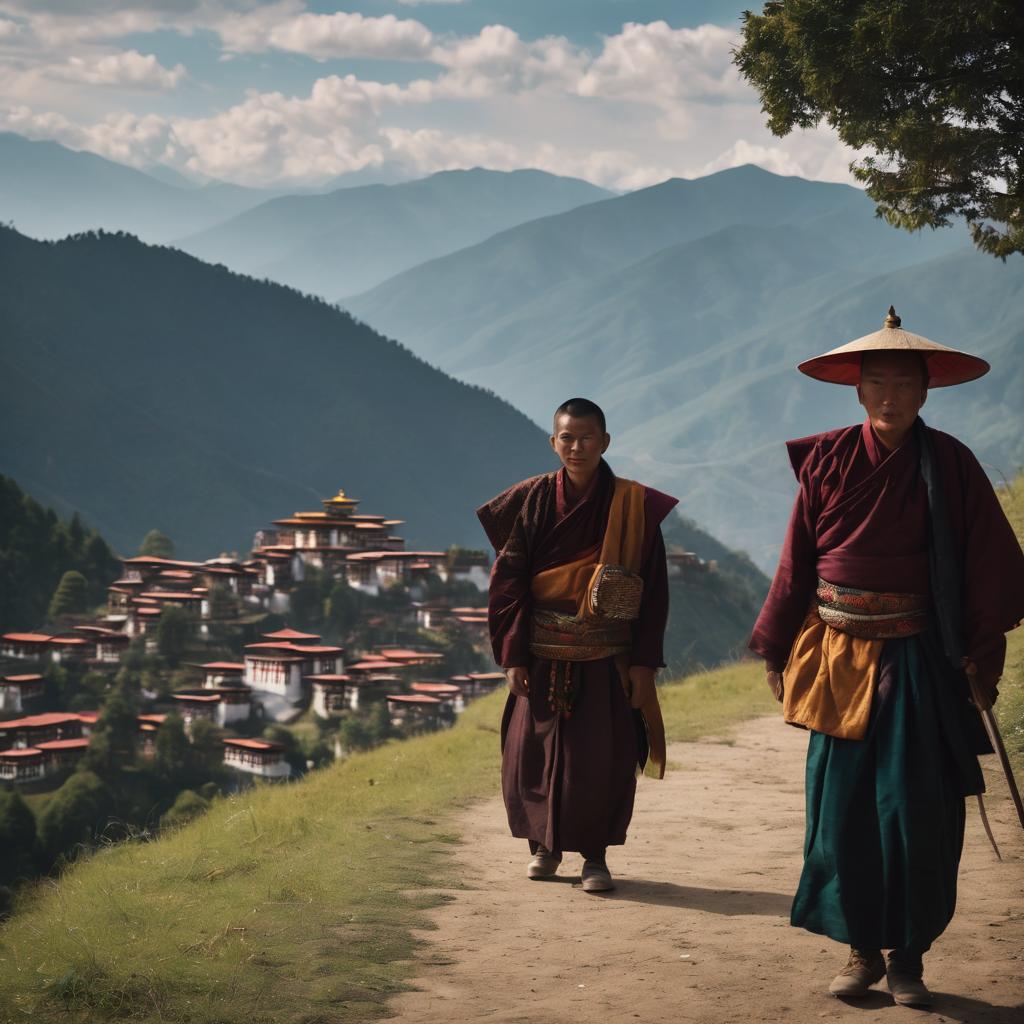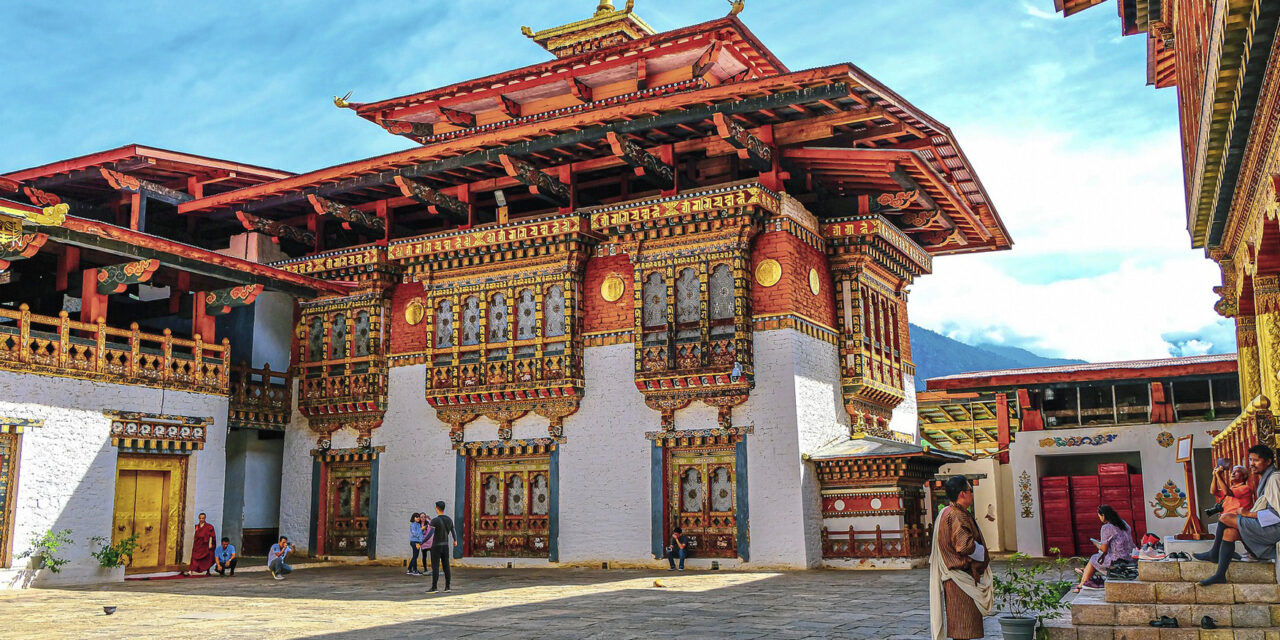In a world where empires have risen and fallen, there is a tiny Himalayan kingdom which stands as a witness to the power of resilience and the importance of national independence, the Kingdom of Bhutan, the land of Thunder Dragons, as their Bhutanese name Druk Yul means. This kingdom has never been conquered, despite being surrounded by larger and more powerful neighbours, India and China. There have always been many debates and discussions regarding it, some say it has never been conquered due to its remote isolated location and rugged terrain as the difficult landscape acted as a natural barrier, deterring potential conquerors. While others believe it's due to the Buddhist faith and strong cultural identity of its people.

Bhutan has endured many threats from its stronger neighbours throughout its history.
- In the 17th century, the Mughal Empire attempted to invade Bhutan but was repelled by the Bhutanese army.
- A Chinese imperial army invaded Tibet in 1720 and seized control of both Bhutan and Tibet. However the country's precise territorial boundaries were unclear, and control over it changed multiple times in the years that followed.
- It was invaded by the British in 1772–1773 and again in 1864–1865, at which time the defeated Bhutanese signed a contract handing the British authority over its southern border crossings. In the 19th century, the British Empire tried to pressure Bhutan into signing a treaty that would have made it a British protectorate. However, the Bhutanese refused, and the two countries eventually signed a peace treaty in 1914.
- Despite Bhutan being neutral during World War II it was still affected by it. The Japanese Empire occupied neighbouring India, and Bhutanese refugees began to flee to the kingdom. However, the Bhutanese government still provided shelter and assistance to the refugees.
After the war, Bhutan remained isolated from the rest of the world for several years to come, until the 1960s, when the kingdom began to open up to the world and even joined the United Nations in 1971.

Even while being in the fast-paced modern world, Bhutan's growing openness has remained committed to its traditional values and culture as it has a strong Buddhist tradition, and it actively promotes Bhutanese culture and language. Bhutan is often praised as a leader in sustainable development and for its commitment to protecting its environment.
What is the secret to Bhutan's success? Let’s get into some of the key elements that significantly contributed to its fight to be a forever independent nation:
- Strong leadership and unity maintained internal peace. The 17th-century unification of Bhutan under Zhabdrung Ngawang Namgyal, founded Bhutan and ruled the country for over 35 years, brought together rival groups and established a centralised political system. The kingdom became more resilient to foreign challenges as a result of the strong leadership's contribution to stability and togetherness.
- The leaders of Bhutan were determined to take measures to protect their autonomy. They had a strong army and fortified border towns that served as early warnings of prospective dangers.
- Early in the 20th century, the Wangchuck dynasty came to power and they had the ability to change with the times. They undertook political changes that modernised the nation while upholding its distinct identity. Bhutan was able to get through difficult times without losing its independence owing to its adaptability.
- It has been researched that strategic diplomacy was also one of the key factors, apart from strong cultural practices and its deep religious faith, that Bhutan has always adopted a policy of, skillfully keeping friendly relationships with its strong neighbours, including Tibet to the north and India to the south.

What still makes Bhutan a unique nation amongst all the other countries?
They measure their growth in Gross National Happiness. It is a place where happiness is valued above all else. A country where happiness is the ultimate goal. Bhutan, widely referred to as the "Land of Gross National Happiness," has an extraordinary strategy for growth. The nation places a greater emphasis on its people's happiness and well-being than just its economic development. King Jigme Singye Wangchuck developed this novel idea, emphasising eco-friendly growth, socioeconomic equity, and sustainable development.
Colonized and conquered are the words in the history textbooks of almost every country in the world but Bhutan. Its history keeps us reminded of the significance of self-reliance and national independence. It is a reminder that even the smallest and weakest countries can resist the most powerful empires. It is also a reminder that the most important things in life are not wealth or power, but happiness and peace.
Ⓒ Copyright 2023. All Rights Reserved Powered By Vygr Media.









